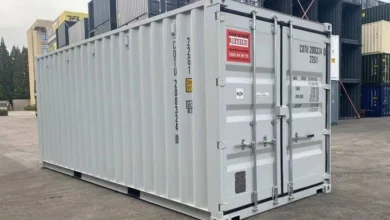
Choosing The Right Work Gloves For Metalwork and Fabrication
Metalwork and fabrication activities can be very enjoyable to pursue. At the same time, they also need to be done with safety at the forefront of mind. After all, it’s a reality that metalwork and fabrication work can be dangerous. It’s why having the right safety equipment on-hand whenever such work occurs is vital. Accordingly, it’s now a good opportunity to discuss some of the key safety gear that should be considered when doing metalwork and fabrication, by discussing work gloves.
Table of Contents
Recognising What Gloves Are and Are Not Suitable
A highly regrettable fact surrounding safety gear is that unfortunately some people mistakenly believe gear that may provide protection for one type of job can be easily interchangeable and useful in another type of job. Safety gloves are actually a very good example of this. For instance, while winter gloves that are designed to keep someone’s hands warm in a very cold climate may indeed serve a very effective purpose in helping their hands avoid an extreme weather-related condition, such gloves should not be presumed to be usable for other safety purposes. It’s why when it comes to metalwork and fabrication, exclusively using gloves that are suitable for these tasks is essential in order to help maximise safety.
What Are Some Hazards Encountered in Metalwork and Fabrication?
Metalwork can involve high heat temperatures. Materials – such as sheet metal – which can be both stiff and sharp will also be commonly encountered. This means there is the risk of bruises in addition to cuts occurring on the hands. Then there are the hazards that can be posed by liquids such as oil and coolants. These specific hazards are just some of the reasons why quality gloves are a must when engaging in metalwork and fabrication.
What Aspects do Gloves that Suit Metalwork and Fabrication Require?
Metalwork and fabrication gloves that provide protection will be able to ensure the transfer of high heat to the hands does not occur. In turn, they should be cut-resistant, and also able to prevent porous materials such as liquids seeping through. Many gloves in this field utilise tough materials such as kevlar in the quest to provide strong protection. Additionally, natural materials such as leather can also feature in the gloves, but it must be noted such products are commonly more expensive than gloves made with synthetic materials.
Conclusion
The old phrase about having the right tool for the job is widely known. It’s essential to understand this saying also applies to safety gear too. As a result, whenever it comes time to choose work gloves for metalwork and fabrication, it’s vital to select a pair of safety gloves that are made of quality materials. Such materials should provide sufficient protection for the wearer when the gloves are in use, while also hopefully feel comfortable while they are being worn. Taking the time to search out a set for safety gloves that meets both these criteria may take a little longer, but it’ll be time well spent as it’ll help ensure a pair is found which helps to maximise both the safety and enjoyment of metalwork and fabrication activities whenever they take place.








